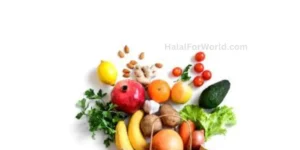A Way of Life Rooted in Permissibility
Halal, an Arabic word translating to “permissible” or “lawful,” holds immense significance in the Islamic faith. It encompasses a broad spectrum of life practices, encompassing not only food but also finances, business dealings, and daily conduct.
Beyond the Plate: The Encompassing Nature of Halal
While most readily associated with dietary guidelines, halal represents a holistic approach to living a life guided by Islamic principles. This concept ensures all aspects of a Muslim’s life adhere to what is deemed permissible by Allah (God) as outlined in the Quran and the teachings of Prophet Muhammad (peace be upon him).
Understanding Halal Food: Purity, Ethics, and Compassion
Within the realm of food, halal specifically refers to what is considered permissible for consumption. Animals must be slaughtered humanely according to Islamic guidelines that say Bismillah-Allahoakbar, with a focus on minimizing suffering. Additionally, certain ingredients like pork and alcohol are strictly forbidden. This focus on ethical sourcing and humane treatment extends beyond the immediate act of slaughter, encompassing the entire life cycle of the animal.
Navigating Diverse Interpretations within the Halal Sphere
While the core principles of halal are well-defined, interpretations among Islamic scholars can differ on specific details. This website strives to present the most widely accepted viewpoints while acknowledging the existence of these scholarly variations.
Join the Conversation: Your Feedback is Crucial
The understanding of halal is an ongoing exploration. If you encounter any information on our website that appears to contradict established Islamic principles, please don’t hesitate to contact us. Your feedback allows us to ensure the information we provide remains accurate and reflects the best understanding of halal according to Islamic teachings.



